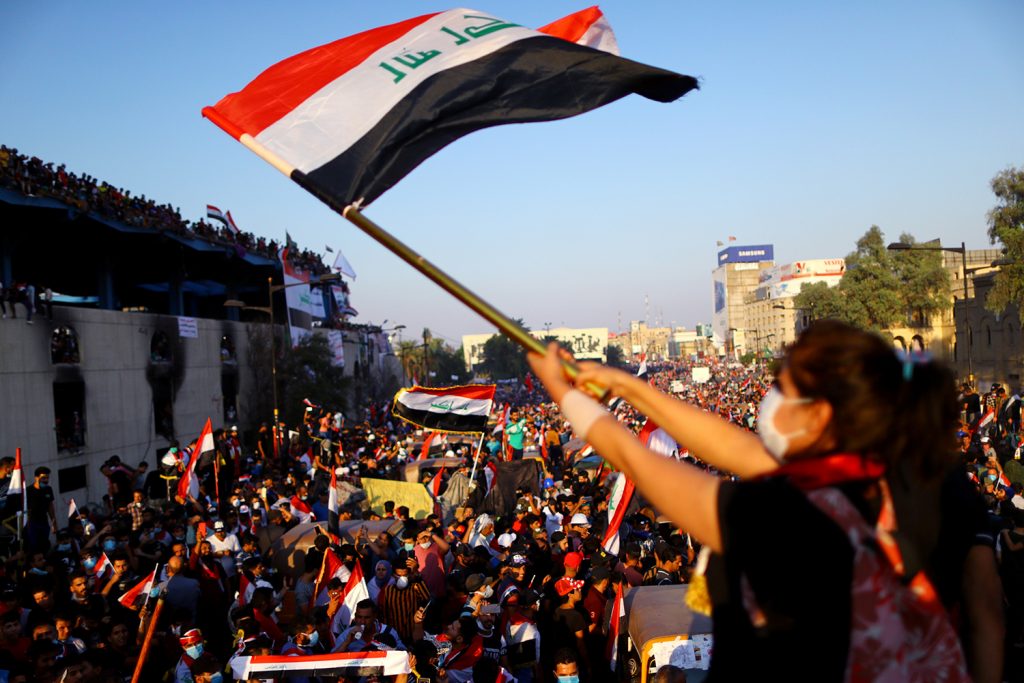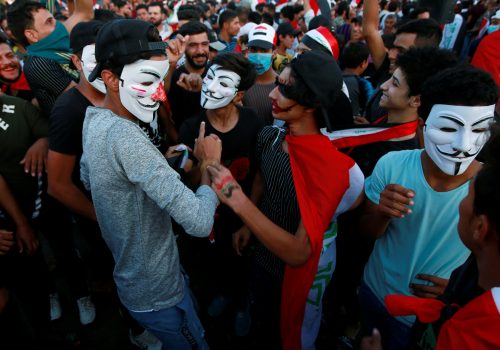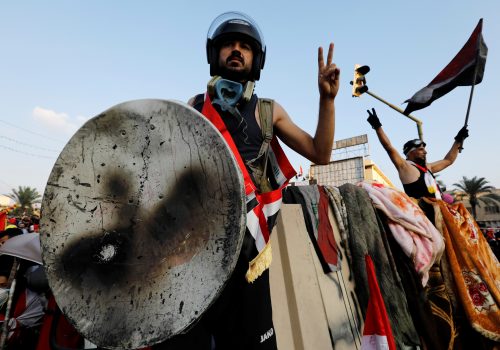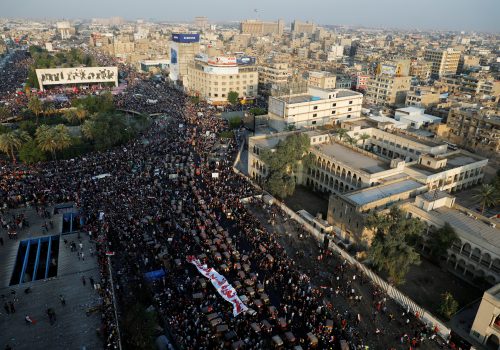In Washington, some believe that despite the protests in Iraq that began in early October and continue apace, the current Iraqi government should be supported and given help as it responds to the just demands of the protesters. The reasons given range from: “What is the alternative? The devil you know is better than the devil you don’t” to “This is the constitutionally elected government, and challenging it risks chaos.”
That analysis might be convenient, but it is wrong. It does not take into account what has led to this explosion of public anger.
The May 2018 elections were all but boycotted by the electorate. The turnout was claimed to be around 44 percent, but many believe it was much lower. That contrasts with the 60 percent turnout in recent previous elections even without all provinces fully participating. Then, in June 2018, a suspicious fire destroyed half of the ballots from the 2018 election, and the results were “adjusted” by an Electoral Commission (EC), which should have been independent but was not. This is why one of the protestors’ key demands is to re-write the Election Law and re-form the EC to make it independent.
The constitutionality of the current political system is open to challenge in other important respects:
- The constitution forbids discrimination on the basis of race, religion, and sect, but the current political order is predicated on the prime minister being Shia, the president Kurdish, and the speaker of parliament Sunni. I was part of the discussions which lead to the first application of the muhasasah system which divides up the top posts (and many others)—à la Lebanon—between various sects and ethnicities and have been consistently against it. The late Jalal Talabani proposed it as a measure for just one electoral cycle to reassure everyone of being included and represented. What was introduced as a temporary measure turned into an imperative convention.
- The constitution explicitly forbids militias. But there exist in Iraq heavily armed militias (and not just the Popular Mobilization Forces, also known as the PMF) with declared allegiance to Iran. Many of the PMF units were brought under the auspices of the state and fell in line with the legislation to formalize their continued existence. Other groups resisted that measure, including Asaib Ahl al-Haq, the Kataeb Hezbullah, and Kataeb Al-Khurasani. Their leaders look to Ayatollah Khamenei of Iran for political and spiritual guidance. These militias wield political as well as considerable military power. The militias may be behind much of the killing and maiming of unarmed protesters. President Barham Salih in his first statement about the violence mentioned elements who operate outside the constitution and laws of the country, stating they committed these crimes. The presence of these militias represents a parallel state which the government cannot control.
- Most importantly, the ruling clique has diverted the country’s revenue from oil—the country’s primary source of income—into the pockets of the elite through an elaborate patronage scheme and corruption resulting in the failure of the government to deliver essential services and wide-spread deprivation and desperation among the people. Young people would not go into the streets unarmed and aware that they face live bullets from the militias if they were not desperate.
The Iraqi government, as it is constituted now and despite all past and present promises and claims to the contrary, does not have the political will or the capacity to deliver good governance. That is why the first demand of the protesters is for the government to step aside and be replaced—hopefully peacefully by constitutional steps—by an emergency administration that is mandated to reform the system and start building a state that will function without corruption and foreign influence and deliver for its people.
The Iraqi people and the young peaceful protesters deserve no less.
The United States should be true to its values and stand with the protesters as well as condemn the excessive violence directed at them and demand that it be stopped. The United States should support the protesters’ demands to transform their system of government and make it less corrupt and more efficient, accountable, and representative, and therefore more stable (moreover, all those changes would make the country more prosperous) and free it from Iranian influence. These aims, if achieved, would clearly be in the national interest of the United States.
Samir Sumaidaie formerly served as Iraq’s ambassador to the United States and Iraq’s interior minister.
Further reading:
Image: An Iraqi female demonstrator waves an Iraqi flag during an ongoing anti-government protest, in Baghdad, Iraq November 1, 2019. REUTERS/Ahmed Jadallah



